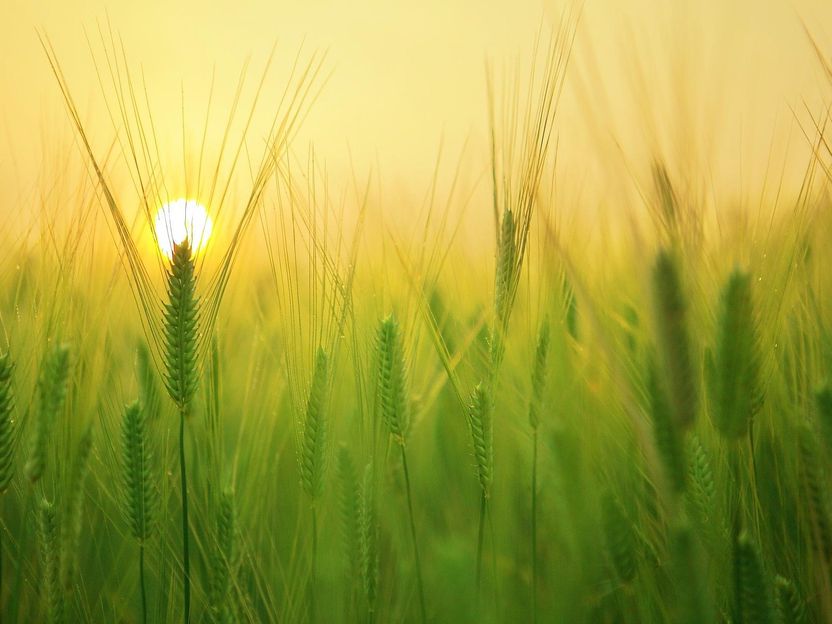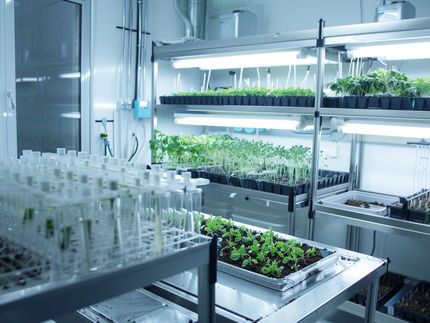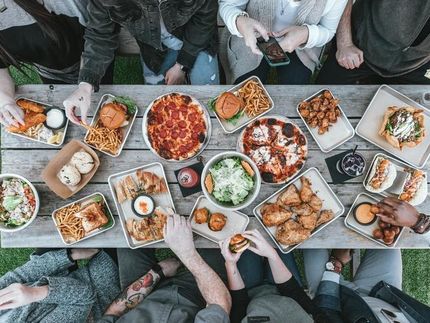Food security: ProVeg calls for a move away from intensive animal husbandry
War in Ukraine makes Farm to Fork more necessary than ever, says science alliance
Advertisement
I

pixabay
n the wake of the war in Ukraine, grain shortages are looming. Voices are now being raised calling for a departure from the farm-to-fork strategy. A fatal mistake, conclude the Potsdam Institute for Climate Impact Research, the Berlin Charité, the University of Oxford and other renowned institutes in a paper published today. The international nourishing organization ProVeg places itself decidedly behind this scientific estimate: A departure from the intensive animal husbandry is alternativeless.
The ongoing war in Ukraine is causing immense suffering worldwide. The dramatic effects do not only affect the country itself. In regions that rely on Ukrainian grain imports, such as North Africa and the Middle East, concerns about famine are growing.1 Prices for feed and food are also rising in Germany. With it the bad states in our nourishing system in their whole urgency become apparent, warns a scientific alliance today. ProVeg shares this assessment emphatically.
The production of animal feed is not food security
While parts of the FDP and CDU parliamentary groups want to weaken the sustainability goals of agricultural policy in order to increase agricultural production,2 the alliance counters: current production could feed even an even larger world population. On the contrary, the unequal distribution of food and especially its extensive use as animal feed would endanger global food security. Countries like Germany, which rely on intensive animal husbandry, are threatened with dependency. Also ProVeg managing director Matthias Rohra demands: Politics must act immediately.
"Currently, we use about 60 percent of our grain as animal feed3 instead of for food," Rohra explains. "The need of the hour is an immediate shift away from intensive livestock farming to free up valuable land and resources for food production. We believe that food security in times of conflict would be greater if the vast amounts of grain were used to feed people instead of animals."
Farm to fork more necessary than ever
First and foremost is adherence to the farm-to-fork strategy. The strategy aims to strengthen climate and biodiversity protection in European agriculture. Among other things, it promotes the cultivation of alternative proteins and a plant-based diet. In this way, Farm to Fork aims to ensure stable food systems and safeguard harvests in the long term. The strategy aims to make our food system more resilient to wars, pandemics and the climate crisis.4
German Agriculture Minister Cem Özdemir has therefore made a strong case for using less grain as animal feed and reducing the number of animals kept.5 "The fact that the Federal Minister of Agriculture is sticking to Farm to Fork and wants to reduce animal numbers is reassuring. But it must not stop at mere declarations of goals. Many consumers are already reducing their consumption of animal products, and the market for plant-based alternatives is growing. The policy must follow now finally and bring immediately concrete measures for a lasting nourishing system on the way , affirms Clara Hagedorn, Politik-Referentin with ProVeg.
Five demands for a safe nutrition
According to the findings of the Science Alliance, ProVeg demands the following ad hoc measures:
- Promote the phase-out of animal agriculture
- Promotion of the switch to the cultivation of plant-based foods
- Shifting subsidies from animal-based to plant-based and cell-cultured products
- Promotion of alternative proteins
- Expansion of plant-based communal catering
ProVeg is also campaigning for this internationally. On March 10, 2022, the nutrition organization joined more than 85 national and international NGOs in sending an Open Letter to the EU Commission. In it, the organizations demanded before the special meeting of the G7 agriculture ministers last Friday: farm to fork must not be up for discussion, the core problem is unmistakably intensive animal husbandry.
Sources
1 WirtschaftsWoche (17.03.2022): Bread for the World warns: "We will notice the wheat prices in Germany at the meat prices" https://www.wiwo.de/politik/ausland/brot-fuer-die-welt-warnt-wir-verheizen-und-verfuettern-weizen/28166440-all.html
2 Deutsche Welle (03/16/2022): The Ukraine war and the organic question https://www.dw.com/de/der-ukraine-krieg-und-die-bio-frage/a-61116300
3 Bundesinformationszentrum Landwirtschaft (09.06.2021): What grows on Germany's fields? https://www.landwirtschaft.de/landwirtschaft-verstehen/wie-arbeiten-foerster-und-pflanzenbauer/was-waechst-auf-deutschlands-feldern
4 European Commission (2020): Farm to Fork Strategy: For a fair, healthy and environmentally friendly food system. Online at: https://ec.europa.eu/food/system/files/2020-05/f2f_action-plan_2020_strategy-info_en.pdf [17.03.2022].
5 Top agrar (07.03.2022): The war in Ukraine and the consequences: Agriculture Minister Cem Özdemir: "Don't pull out the old talking points now." https://www.topagrar.com/management-und-politik/news/landwirtschaftsminister-cem-oezdemir-jetzt-nicht-die-alten-sprechzettel-herausholen-12907477.html
Note: This article has been translated using a computer system without human intervention. LUMITOS offers these automatic translations to present a wider range of current news. Since this article has been translated with automatic translation, it is possible that it contains errors in vocabulary, syntax or grammar. The original article in German can be found here.






























































